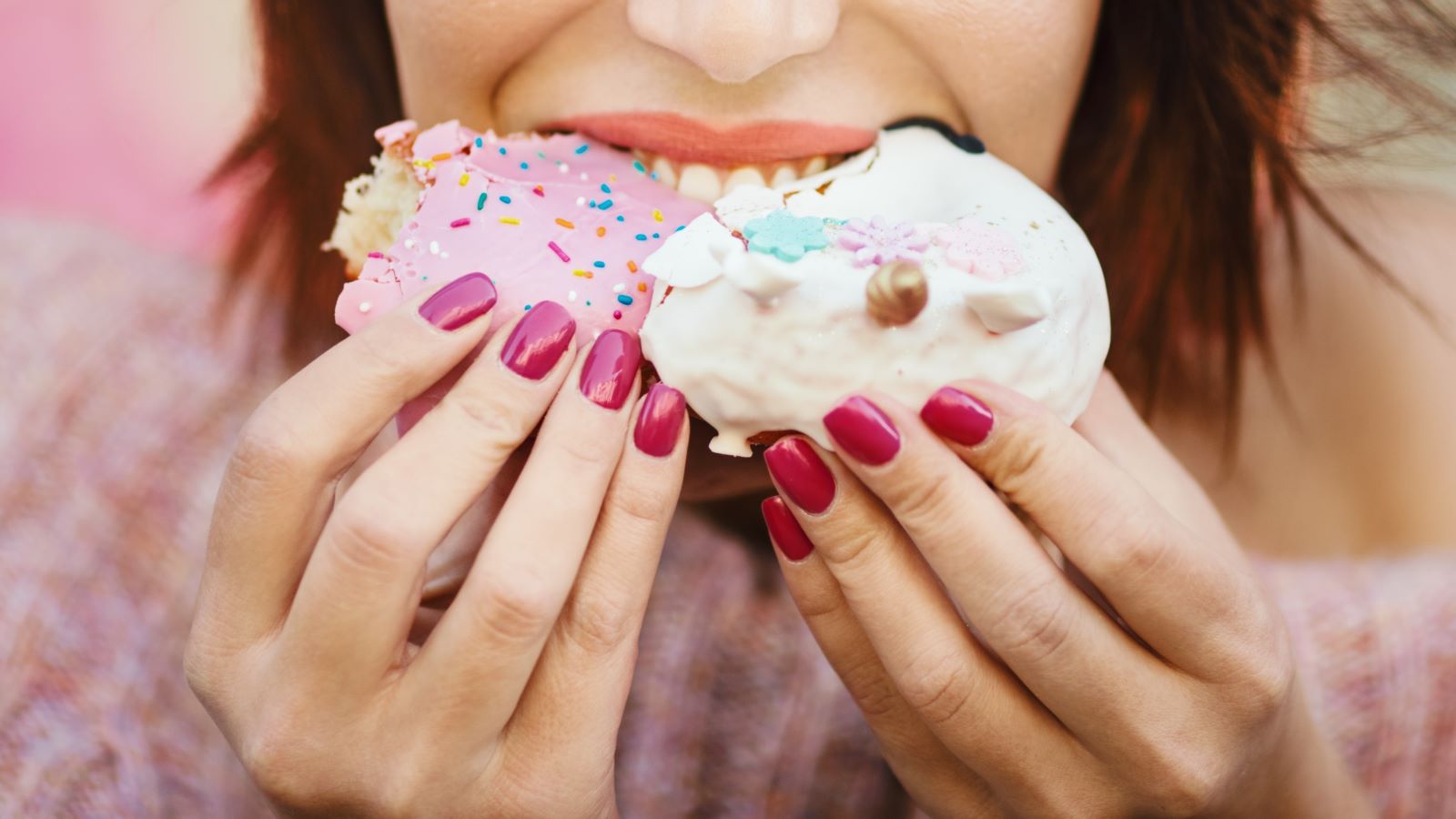<< Back
What Food Cravings Say About Your Health

October 07, 2024
Trust your gut, they say. But what if you have a sudden desire for gummy bears or cheesy bread — should you trust that too? Do your cravings actually mean anything?
No and yes. Don’t read too much into the specific item you’re craving. But yes, that general hunger cue probably means something.
A nutrition expert shares the message behind most cravings.
Want healthy lifestyle tips delivered to your inbox?
Sign up here
1. You’re not eating a balanced diet.
Too many carbs, not enough protein. Lots of dairy, but not a veggie in sight.
If your day is interrupted by lots of cravings, have a good long think about the food pyramid, and whether yours is lopsided.
“Many times, cravings can happen when we aren’t receiving all the nutrients we need,” says Dana Purcell, RD, a registered dietitian with the Hartford HealthCare Digestive Health Institute seeing patients in Fairfield and Wilton.
> Related: Does Age Affect Metabolism? And What to Do About It
2. You’re stressed, bored or feeling some feelings.
Our emotions are one of our strongest triggers for overeating, period.
And it’s a cycle that builds on itself. When you reach for a snack in response to stress or other emotions, your brain makes a note. Next time you’re feeling emotional, it’s ready to fire up that signal again.
“Emotional and habitual eating can potentially lead to cravings,” says Purcell. “Work on trying to manage stress in other ways, not involving food.”
> Want more health news? Text StartHere to 85209 to sign up for text alerts
3. You need more sleep.
At minimum, stress and other emotions hit us harder when we don’t get enough sleep. When that happens: See above.
That’s just the start, though. Sleep deprivation also sends your body on a mission for any energy source it can find. Your body turns to food.
“The hunger hormone ghrelin increases in response to lack of sleep,” says Purcell. “If we’re not sleeping enough, we may end up eating more calories or reaching for quick carb sources throughout the day as our bodies try to make up for the lack in energy.”
4. You consume too much sugar.
Despite all the damage it can do long-term, sugar does temporarily light up the happy centers in your brain. That creates a powerful craving cycle.
“Eating sugar can release serotonin or dopamine, which makes us feel good and we want to feel it again. So when it comes to sugar, the more we eat of it, the more we may crave,” says Purcell.
Luckily, this is reversible.
“If you limit your intake of sugar overall, it can help reduce those cravings,” Purcell says.
Still not sure what your cravings mean? Try this.
Cravings are complicated. Here are a few more quick tips:
- Add more protein to your diet. This can help reduce ghrelin, a hormone that makes you feel hungry. Because protein takes awhile for your body to break down, it also helps you feel fuller longer.
- Add fiber too. Like protein, fiber helps you feel fuller throughout the day.
- Drink more water. Aim for 64 ounces daily.
- Redirect your craving. Say you’re craving something high in sugar, fat or calories — let’s call it an Oreo milkshake. Honor that hunger , but with a swap that’s more nutritious. Protein shake, anyone?
If all else fails, have a small amount of whatever you’re craving, slowly and mindfully.
“Just eating what you’re craving in a moderate portion can help get rid of the craving without overeating,” says Purcell.
You may discover you didn’t actually want that whole bag of gummy bears — just a few in your favorite color. The clear ones are the best anyway.